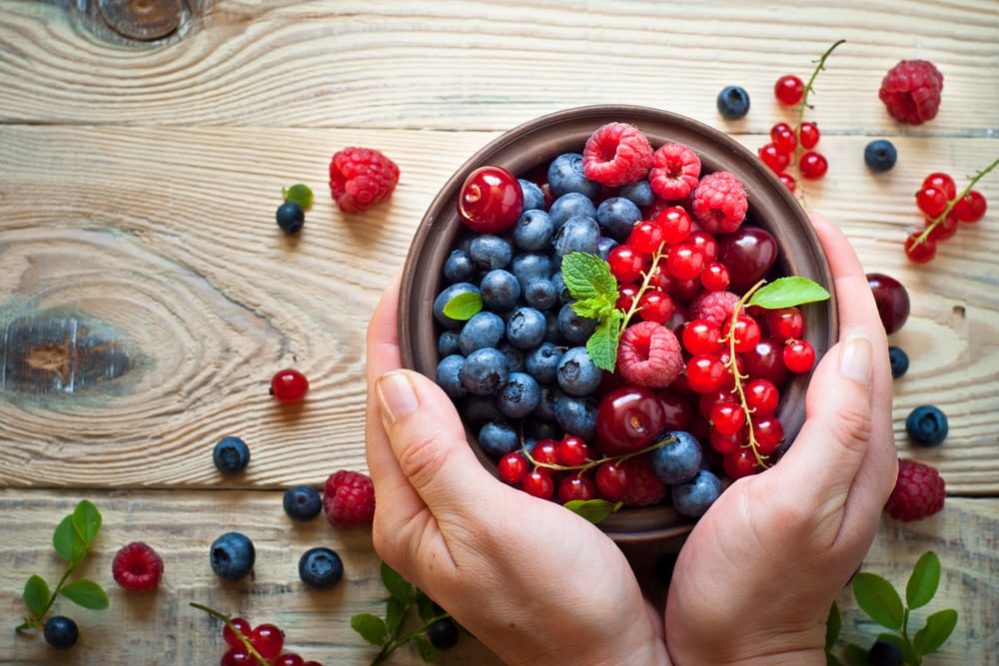Consuming high-flavonoid foods such as apples, pears, tea, strawberries or blueberries for 20 years might have a protective effect against the onset of Alzheimer’s disease and other types of dementia, according to a new epidemiological study.
The research
Including berries – such as blueberries or strawberries –, apples, pears, and tea for years may be helpful in preventing the onset of Alzheimer’s disease and other related types of dementia, according to an epidemiological study by the Jean Mayer USDA
Human Nutrition Research Center on Aging, Tufts University, in Boston (USA).
The goal of this research, published in The American Journal of Clinical Nutrition, was to analyze the association between consuming high-flavonoid foods over a long period of time and the risk of Alzheimer’s disease and other age-related types of dementia. And the conclusion is that people who eat products that are high in these substances for at least two decades after the age of 50 have a twofold to fourfold lower risk of Alzheimer’s disease.
It must be taken into account that currently there is no effective medication or pharmacological treatment to cure Alzheimer’s disease or other types of dementia, so the only choice is to try to prevent the cognitive deterioration it causes. And diet is a factor that researchers have been considering for years in multiple studies, most of them with certain limitations in their formulations.
Strawberries, citrus fruits, tea, pears or chocolate as sources of flavonoids
Flavonoids are natural bioactive pigments widely found in plant-based foods. According to their chemical structure, flavonoids are classified into 7 main classes, including flavan-3-ols, flavonols, anthocyanins, flavones, flavanones, flavonoid polymers, and isoflavones. When talking about foods that are high in these compounds, the most common sources of flavonoids include berries and red wine (high in anthocyanins), citrus fruits and juices (high in flavanones), tea and dark chocolate (high in flavan-3-ol), parsley and celery (high in flavones), as well as onions and apples (high in flavonoles) and high-soy products (isoflavones).
The conclusions
People who used to consume more than 7 cups of blueberries or strawberries, 8 apples and pears, and 19 cups of tea per month had a lower risk of Alzheimer’s disease.
The Tufts University researchers analyzed six groups of flavonoids and compared the intake levels of 2,800 participants for 20 years to the diagnoses of Alzheimer’s disease and other types of dementia related to this disease. Thus, they found that people who didn’t eat blueberries or strawberries (high in anthocyanins) had a fourfold higher associated risk of Alzheimer’s or related types of dementia, while this risk was two times higher in those who only ate apples or pears (flavonoles) 1-2 times a month; or those who didn’t drink tea (containing flavonoid polymers). On the other hand, individuals who ate more than 7 cups of blueberries or strawberries, 8 apples and pears, and 19 cups of tea per month had a lower risk.
The research was conducted on 2,800 people over the age of 50 who didn’t suffer from Alzheimer’s disease or any other type of dementia at the start of the study and who in fact participated in another research that looked at risk factors for heart disease (the Framingham Heart Study (FHS). These participants had to answer a few questionnaires and undergo medical check-ups every four years. To confirm that the answers about their diet were correct, the researchers excluded the answers provided during the years before getting a diagnosis of dementia, since as cognitive deterioration increased, the answers might not have adjusted to reality.
However, this study has some shortcomings. For example, it didn’t take into account other factors that can also influence the onset of Alzheimer’s disease such as education level, smoking habit, physical activity, body mass index and overall quality of the diet.
Link: https://www.webconsultas.com/noticias/dieta-y-nutricion/manzanas-te-y-fresas-podrian-reducir-el-riesgo-de-alzheimer
Date: May 7th, 2020
By: Caridad Ruiz






